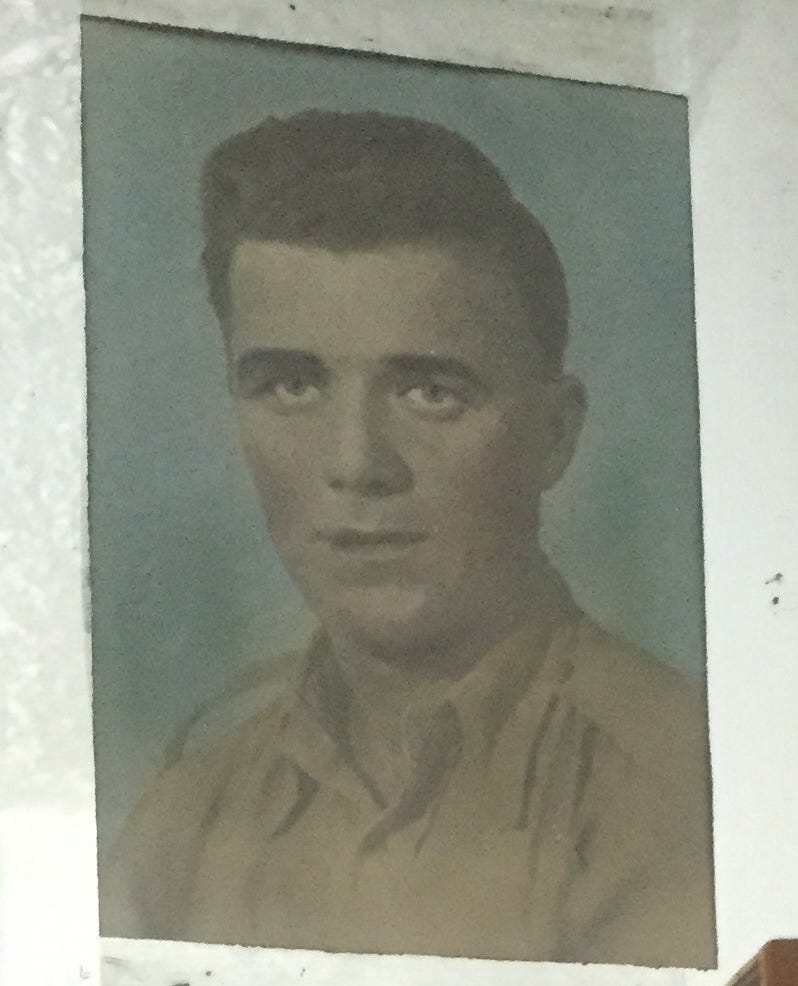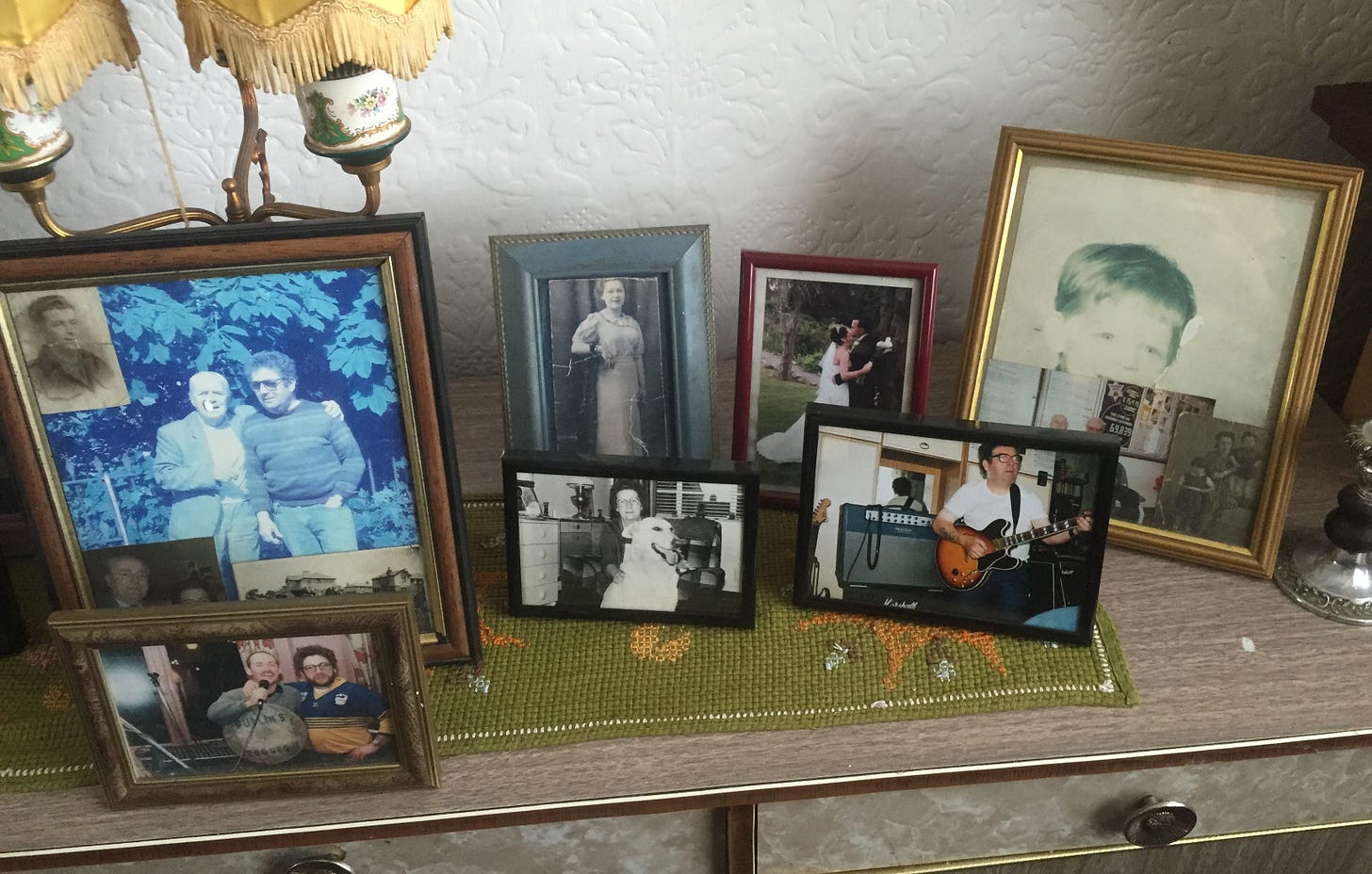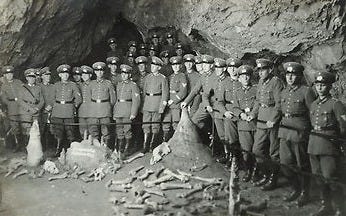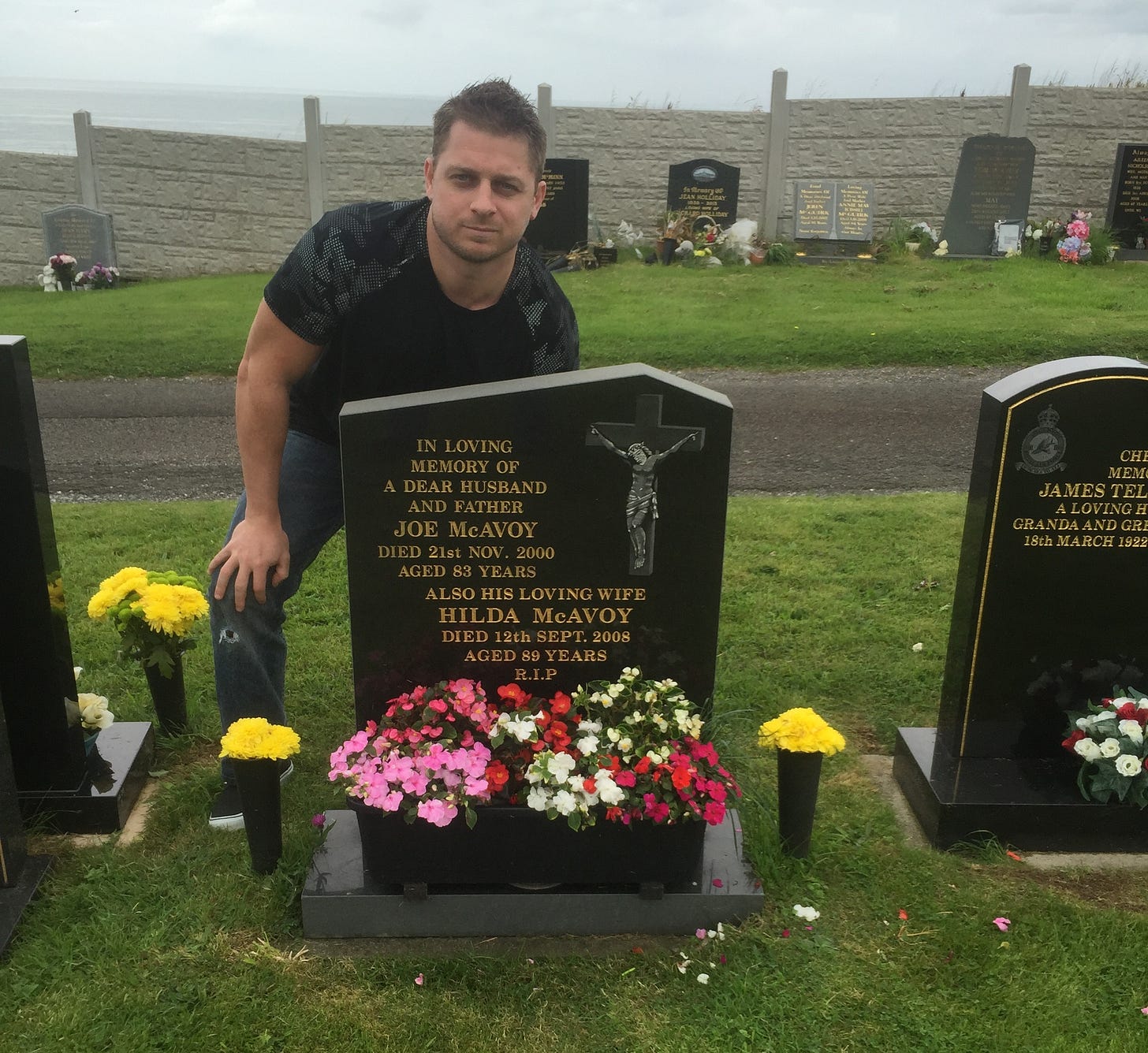Discovering My Roots: My Grandfather's War Stories
Summer of '95: From Australia to the UK via Hong Kong
The summer of 1995 changed my life. At fourteen years old, I boarded a plane with my dad in Australia, nervousness and excitement battling in my stomach as we began our long journey to the United Kingdom, a country I'd only known through family stories and fuzzy long distance phone calls with relatives who spoke in accents that were completely different to us Aussies back home. My UK based aunty/uncle and cousins had lived in Australia for a short time until 1989 but had left and that was the last time I saw them until this summer - 6 long years. I would leave with a handful of memories and a war story that will never be forgotten.
Our journey to the UK included a memorable stopover in Hong Kong, my first glimpse of Asia. The bustling streets, neon signs, and crowded markets were unlike anything I'd experienced in Australia and little did I know I would return to Hong Kong another three times as an adult, and later call Japan home for 23 years and counting. It was in Hong Kong, then still a British territory, amid the city's vibrant tech markets, that I made perhaps the most enviable discovery a teenager could make in 1995: a device that could copy Sega Mega Drive games onto floppy disks.
I returned to high school after that trip not just with stories of meeting distant relatives and seeing my beloved Liverpool play Premier League football, but as the kid with an endless supply of Sega Mega Drive games. The social currency this granted me amongst the computer game geeks was immeasurable!
It was my first time in the United Kingdom, a pilgrimage of sorts to the land where half my family originated. The England that greeted me was everything and nothing like I'd imagined. The streets of Workington and also Liverpool felt simultaneously foreign and familiar, as if some genetic memory had preserved the feeling of this place in my DNA. There are studies about epigenetics to suggest that trauma can be passed down through generations via changes in DNA expression, so if this is to be true, my father’s memories and his UK DNA surely hit me too, I felt it in every inch of my 14 year old body. If this stuff interests you, a 2015 study by Rachel Yehuda found that Holocaust survivors and their children shared trauma-induced DNA modifications which can be inherited and a Canadian study discovered epigenetic alterations in children whose mothers experienced domestic violence during pregnancy.
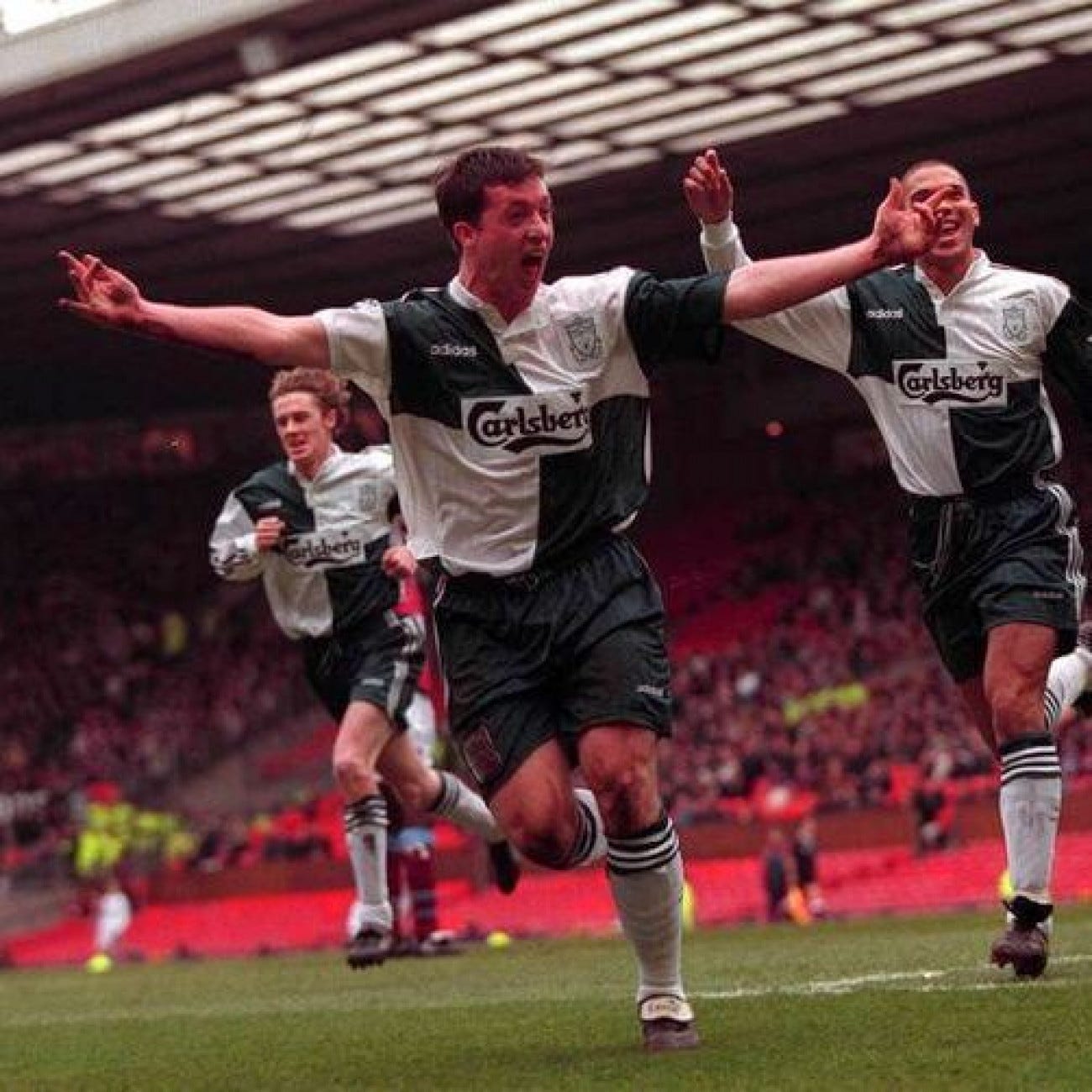
The summer of ‘95 was my first time meeting my English cousins, who until then had been just names on occasional Christmas cards. It was my first time walking through the storied gates of Anfield to watch Liverpool play on their home turf, after years of following them from afar and having a bar room in our Australian house dedicated to them by my dad. It was also my first encounter with the sounds of Oasis, whose music seemed to pour from every shop and car window, becoming the unofficial soundtrack to my British awakening. How fitting! What a shame they are from Manchester.
But amid all these discoveries, one experience stands out with particular clarity. One afternoon my grandfather, Joseph William McAvoy Senior, shared his war stories with me. We sat in his back garden as the summer day faded, the older man's voice growing softer as he spoke of things he rarely discussed.
As the birds still chirped over his garden in the late afternoon, “Gaga” as we call grandad in that area, began to speak about his time during World War II. His weathered and aged hands moved through the air as if mapping out the Italian countryside where he'd spent some of the most harrowing months of his life.
The cold December wind of 1944 was unforgettable he said. He remembered pulling his coat tighter around him as the winter cold went right to his bones. Winter in northern Italy was just as formidable an enemy as the Germans, who were entrenched in the hills in front of him. His unit had been trying to push further north and they were now facing the formidable Gothic Line defenses. The Gothic Line, the last line of defense in Italy, was necessary, but senior German commanders had not been concerned that it would ever be contested by Allied forces.

"McAvoy, take point with Smith” (Rionne: I don’t remember the real names in this story) ordered Lieutenant Gallagher as their patrol prepared to move out at dusk. As 1944 was drawing to a close, Gaga found himself navigating treacherous terrain where the Germans had turned caves into fortified positions, perfect for attacks.
His unit moved silently through the countryside, staying low where possible. A different unit had reported a series of caves being used as German observation posts and ammunition stores in the hills and as they approached the targeted location, Gaga signaled the patrol to halt, noticing movement near one of the cave entrances.
"Regular patrol pattern" he whispered to his small unit of men.
After observing for several minutes, Gaga (remember, that’s how people from his area say grandad) and his unit moved forward once the German patrol unit had left.
They had been trained to move silently and Gaga and his team advanced to the cave entrance. They had no idea what was awaiting them inside.
Inside the cave, the patrol's torch beams sliced through the darkness, revealing that the cave was not actually a secret German communications hub, but a grim discovery showed that several bodies of German soldiers lay still against the cave wall. Gaga’s unit was made up of young men, who just a few years earlier were enjoying their youth, kicking footballs (soccer balls) about in the streets and drinking at pubs after work in the mines or the factories. They surely were not ready to see this discovery.
In previous operations, the Allies had lost men to German soldiers feigning death, only to attack from behind once the patrol had passed. With grim determination, Gaga and the others moved through the cave, forced to bayonet each fallen soldier they passed. This, he said, was a brutal but necessary precaution in a war where deception could mean death. In this particular instance, all of the soldiers were indeed dead.
I don’t recall how the war ended for Gaga. The network of caves and trenches that had been their battlefield had faded into just a memory for him but I was glad he had shared this story with me. I remember suddenly feeling very young in the presence of this man who had lived through the history I'd only read about briefly in textbooks at school in Australia, a million miles and years away from any war fields in WWII Europe.
"Did you ever feel scared?" I asked.
He smiled slightly. "Every day," he said. "I just thought of going home and seeing my family again - which I’m glad I did or you wouldn’t be here!"
That day changed how I saw my grandfather, how I understood my family's connection to England, and perhaps most importantly, how I viewed myself. In his stories of trenches and caves, of cold nights and quiet courage, I found pieces of my own identity I hadn't known were missing.
Now, years later, as I write this, I'm grateful for that summer of 1995. I’m grateful for being able to watch Liverpool play live, for discovering and listening to Oasis and a whole new genre of music, for meeting family, but most of all, for sitting in a garden with Gaga as he shared the stories he'd carried with him for fifty years, passing them to me like an inheritance more valuable than gold (could have done with some of that too!). On the last day of my trip, I gave him a hug in his kitchen and he cried. He knew it might be the last time we ever saw each other and it turned out to be true. He passed away 5 years later on November 21st, 2000. 8 years later my Nana Hilda joined him, buried and forever resting together.
Rionne McAvoy is the director of the award-winning documentary The One's Left Behind: The Plight of Single Mothers in Japan, showcasing his dedication to addressing pressing social issues. A committed documentary filmmaker and professional wrestler, he explores critical themes with passion and insight. Additionally, he has a keen interest in post-World War II Japan, particularly the intricate connections between politicians and gangsters during that era. Known in the wrestling ring as Rionne Fujiwara, he brings the same determination and storytelling prowess from his wrestling persona to his filmmaking endeavors.




